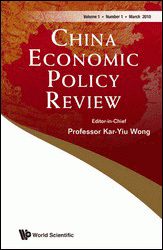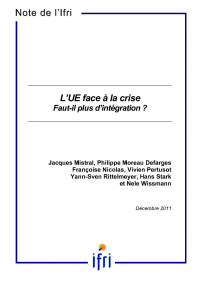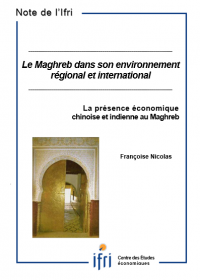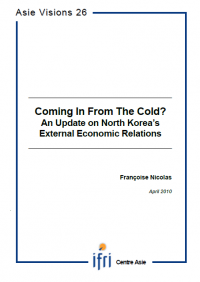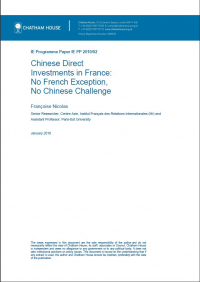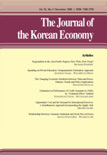
Françoise NICOLAS
Senior Advisor, Center for Asian Studies
Research Interests:
- Emerging economies, with a focus on East Asia
- East Asian regional economic integration
- Foreign direct investment and growth
- Globalization and its impacts on global governance
Françoise Nicolas joined Ifri as a Resarch Fellow in1990 and was later the Director of the Center for Asian Studies until February 2024. She is now Senior Advisor to the Center for Asian Studies while she also teaches at Langues' O, Sciences Po Paris (Europe-Asia programme, Le Havre campus) and Sciences Po (Lyon) and is a consultant to the Directorate for Financial, Fiscal and Enterprise Affairs of the OECD (DAF) focusing on Southeast Asian non-member countries. In the past she was an assistant Professor in international economics at the University of Paris-Est (Marne-la-Vallée) from 1993 to 2016, and taught at the Graduate Institute of International Studies (GIIS, Geneva – 1987-90), at the Ecole Nationale des Ponts et Chaussées (1991-95), as well as at the HEC School of Management (2000-02).
Françoise Nicolas holds a Ph.D in international economics (1991) and a MA in political science (1985) from the Graduate Institute of International Studies (Geneva, Switzerland), as well as a diploma in translation from the University of Geneva (1980). She has also studied at the University of Sussex (1980-81) and has spent some time as a visiting fellow at the Institute of Southeast Asian Studies (ISEAS) in Singapore (1999) and at the Korea Institute for International Economic Policy (KIEP) in Seoul (2004).
Although outward direct investment (ODI) is still very much a developed country phenomenon (with industrial countries accounting for more than 75% of global flows), ODI from the “South” is gaining ground, with China ranking among the most active outward investors. Taking...
The European Union is facing a tremendous challenge: coming out of the crisis unified. Every summit is both labeled the one of all hopes and the one of the last chance. Information keeps coming in, which hampers a good comprehension of the situation.
To the surprise of many analysts, the outbreak of the global financial crisis (GFC) in 2008 did not leave East Asian economies unscathed. The objective of the paper is to examine the implications of the GFC for the regional economic integration process in East Asia, taking into account both...
After two years of existence at the Heads of State and Government level, the Group of 20 (G20) has reached a turning point. In this new context, a number of questions need to be addressed-in particular, as to how to ensure the transition from a crisis management body to a global governance...
One of the major events of the last couple of decades has been the rise of China and India, reflected by their increasingly important economic presence in the world, both in terms of trade flows and of foreign direct investments.
...A salient feature of the East Asian region is the persistent discrepancy between the progress in de facto and de jure economic integration. East Asia has long been said to be the champion of loose regional economic integration, with deepening intra-regional trade and...
This brief analysis of the current external economic relations of the Democratic People’s Republic of Korea (DPRK) leads to a number of conclusions.
China's direct investment in France remains surprisingly low even compared to other EU states although the targets are quite similar, being heavily biased towards export-support and services rather than industrial activities.
...The economic rise of China and its integration into the globalization process is undoubtedly one of the most important developments of the past decades. The objective of the paper is to examine the changing nature and structure of the Korea-China trade and investment...




